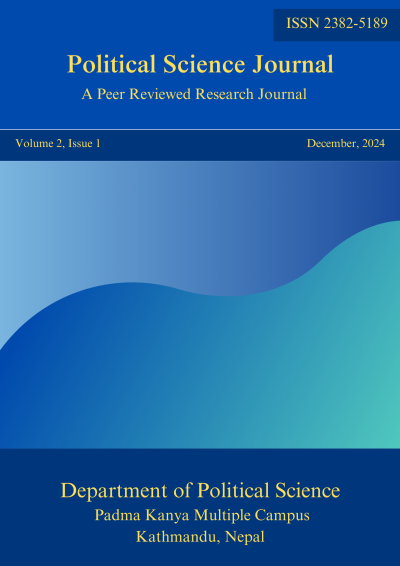Enhancing Women's Leadership in Local Government through Training
DOI:
https://doi.org/10.3126/psj.v2i1.75110Keywords:
empowerment, leadership, representation, parity, constitutional assemblyAbstract
Women in Nepal comprise nearly half of the total population, yet cultural attitudes and beliefs persist, hindering their social transformation. Cross-national research and training programs increasingly recognize the impact of subjective beliefs on women's empowerment, participation, and leadership, contributing to the emergence of knowledge societies. Recent local government reforms in Nepal have introduced quotas for women in grassroots democratic institutions, reflecting a recognition of women's concerns in government agendas. However, significant gaps remain in gender balancing within government policies and reform agendas. Women's participation, particularly of Dalits and underprivileged women, in local and parliamentary elections is a vital democratic practice at the grassroots level. Thus, addressing the state of women's participation at this level is imperative, as participation and empowerment are closely intertwined




